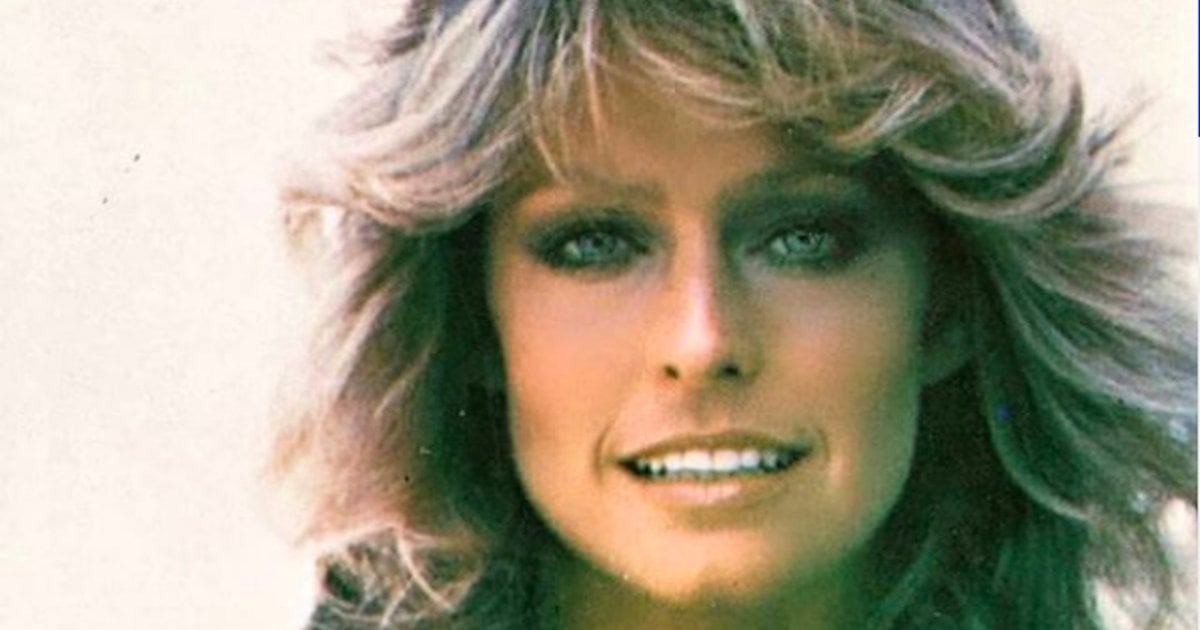Had she lived, Farrah Fawcett would be 73 years old now. Best known for her breakout role in “Charlie’s Angels,” Fawcett died in 2009 of HPV-related anal cancer, a disease that could be wiped out if parents follow the recommended guidelines and vaccinate their children against HPV, according to the American Cancer Society.
After being diagnosed with cancer in 2006, Fawcett was declared cancer-free in 2007 on her 60th birthday. That same year, she launched the Farrah Fawcett Foundation with the goal of furthering prevention and research on the disease — a goal that could be realized for the coming generation.
Read MoreAnal cancer is one of 6 cancers caused by HPV (human papillomavirus), which is spread through sexual contact. According to the Farrah Fawcett Foundation, 80% of the population will contract HPV at some point in their lives.
HPV Vaccine Offers Hope
The human papilloma virus, also known as HPV, is transmitted sexually and, in addition to anal cancer, can cause cervical, penile, oral, and head and neck cancers. According to the Farrah Fawcett Foundation, 80% of the population will contract HPV at some point in their lives. The HPV vaccine was introduced in 2006.
RELATED: HPV Vaccine Not Recommended For Adults Over 26, Per New American Cancer Society Guidelines
In July, the American Cancer Society recommended that children ages 9-11 get the HPV vaccine, with catch-up vaccinations available for those up to age 26.
Dr. Ted Teknos explains how the HPV vaccine can prevent cancer and save a child’s life, Scientific Director of University Hospital’s Seidman Cancer Center.
“The HPV vaccines do not cause autism,” says Dr. Jessica Geiger, a medical oncologist at Cleveland Clinic Cancer Center, addressing the anti-vax myths that have surrounded the vaccine since it was introduced in 2006.
View this post on Instagram
“There's always a risk of some vaccine-related side effects … local site injection pain, some redness, some swelling," she notes but adds, "there are no syndromes such as autism or other neurologic symptoms that have been linked to the HPV vaccines."
Dr. Geiger also points out that some parents resist the vaccine because they don't want to consider their children becoming sexually active.
"The fact is that the majority of us are going to participate in sexual activity at some point in our lives … it's unreasonable to think that just because your child isn't engaging in sexual activity now that they won't later in life."
Fawcett’s oncologist, Dr. Lawrence Piro, President and CEO of The Angeles Clinic and Research Institute in Los Angeles, talks to SurvivorNet about the doctor-patient relationship.
Her Brave Documentary
After her cancer returned, the actress filmed all the ways cancer affected her daily life for an ABC documentary, “Farrah's Story” debuted in May 2009 and offered 15 million viewers a heart-wrenching look into the realities of the disease.
The documentary includes interviews with Dr. Lawrence Piro, Fawcett's oncologist; Mela Murphy, her hairstylist who details the moments when the actress' locks first started falling; and Dr. Ursula Jacob, a physician in Germany who treated the actress with alternative therapies.
"First Elimination Of A Cancer In History"
When the new HPV vaccine guidelines were released last month, they came with a bold statement — the kind that organizations like the American Cancer Society are often reluctant to make.
But there it was: "Vaccination of all children between ages 9 and 12 years will prevent >90% of the cervical, oropharyngeal, anal, vaginal, vulvar, and penile cancers that are caused by HPV and, combined with screening and the treatment of cervical precancers, can lead to the first elimination of a cancer in history."
This is possible only if children and young adults — up to age 26 — follow through and see their doctors for the HPV vaccination.
Signs and Symptoms of Anal Cancer
Friends of the actress have said she had been exhibiting symptoms for a long period of time before seeing a doctor. "Putting diagnosis and treatment on the back burner led to the poor prognosis," said Dr. Julian Sanchez, a surgeon in Moffitt Cancer Center's Gastrointestinal Oncology Clinic.
"These symptoms usually do not develop overnight. Often patients will have symptoms such as pain and bleeding."
“If anal cancer is not treated early and effectively, the survival odds decrease and patients usually have to have major surgery to remove their anus and rectum,” Dr. Sanchez said. They will also need a permanent colostomy bag, a small pouch that collects waste from the body.
RELATED VIDEO: Lillian Kreppel Got Cancer Through HPV, And She Wants to Stop the Vaccine Controversy
While anal cancer may have no symptoms at all, in most cases, bleeding is often the first sign of the disease, according to the American Cancer Society. At first, many people assume the bleeding is caused by hemorrhoids, which are a benign and fairly common cause of rectal bleeding.
Important symptoms of anal cancer include:
- Rectal bleeding
- Rectal itching
- A lump or mass at the anal opening
- Pain or a feeling of fullness in the anal area
- Narrowing of stool or other changes in bowel movements
- Abnormal discharge from the anus
- Swollen lymph nodes in the anal or groin areas
While these symptoms may also be caused by benign conditions, like hemorrhoids, anal fissures, or anal warts, if you have any of them, it's important to have them checked by a doctor so that the cause can be found and treated, if needed.
Learn more about SurvivorNet's rigorous medical review process.


